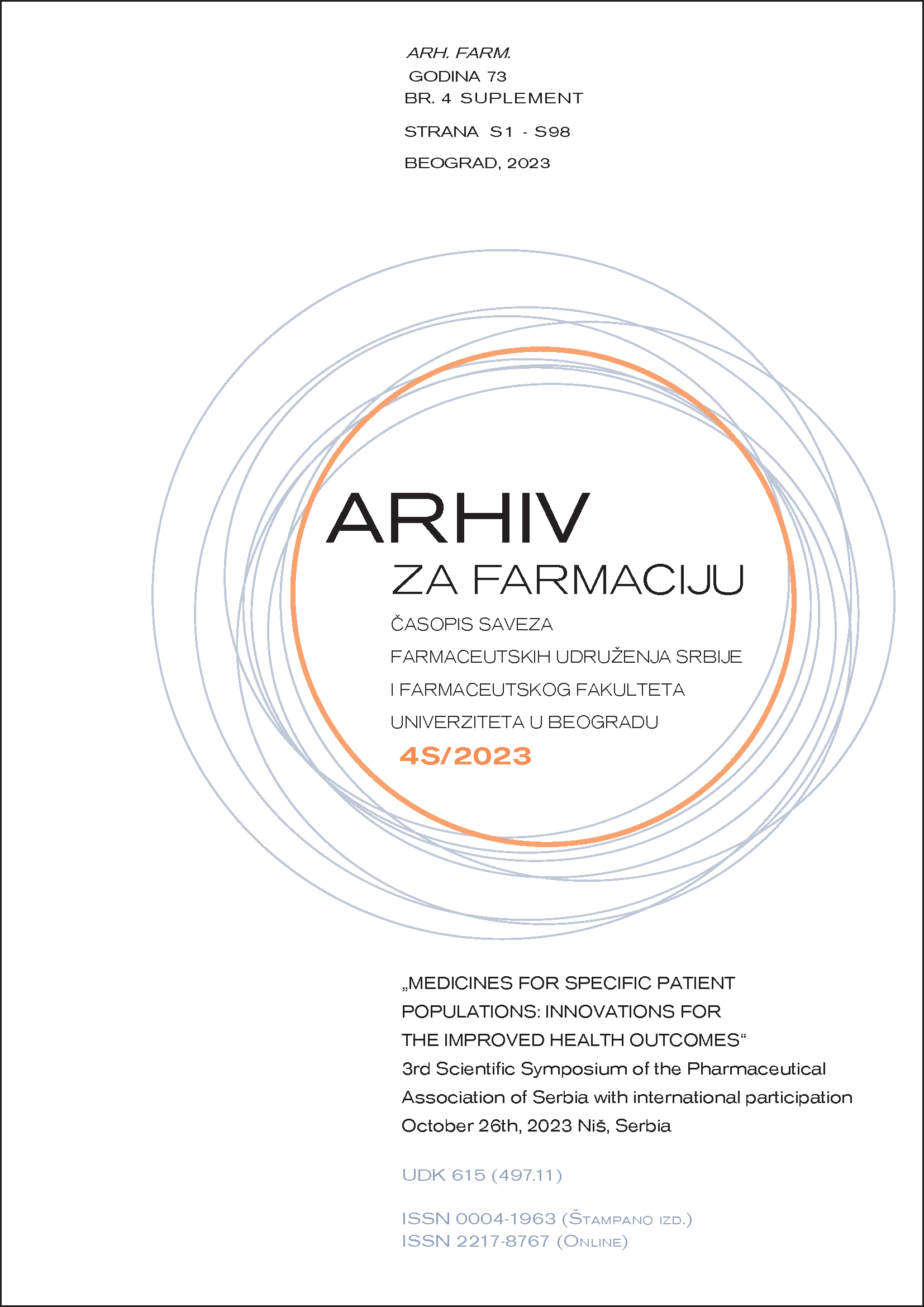ANTI-INFLAMMATORY ACTIVITY OF WILD CARROT (Daucus carota L.) UMBELS ETHANOLIC EXTRACTS FROM SERBIA AND GREECE
Abstract
Wild carrot, Daucus carota L. (Umbelliferae) is an aromatic plant used since ancient times in traditional medicine due to its recognized therapeutic properties. In this work, the comparative analysis of extractive matter (EM) yield, content of total phenolics and flavonoids, as well as anti-inflammatory activity of the wild carrot (umbels without seeds) extracts from two countries (Serbia (SWC) and Greece (GWC)) was investigated. The extracts were obtained by maceration with 50% V/V ethanol using solvomodule 1:10 m/V for 48 h. The total phenolic and total flavonoid contents were determined according to the Folin-Ciocalteu method and by the complexation reaction with AlCl3, respectively, and their in vitro anti-inflammatory activity by Bovine Serum Albumin-BSA assay. The yield of EM in the obtained SWC and GWC extracts was 15.96 and 14.23 g per 100 g of plant material, respectively. The wild carrot extracts from two countries have similar content of total phenolics (56.94 and 55.30 mg GAE/g of dry extract for SWC and GWC, respectively) and flavonoids (48.90 and 48.68 mg RE/g of dry extract for SWC and GWC, respectively), while the SWCE extract showed better anti-inflammatory activity. Both extracts exhibited a significant in vitro anti-inflammatory effect, where the higher percentage was detected by SWC extract (91.83%) in comparison with GWC extract (88.27%). The value of BSA denaturation inhibition for diclofenac sodium (standard anti-inflammatory drug) was 95.6%. The obtained results indicate the possible application of both extracts in the food and pharmaceutical industries as a safer alternative to synthetic additives.

